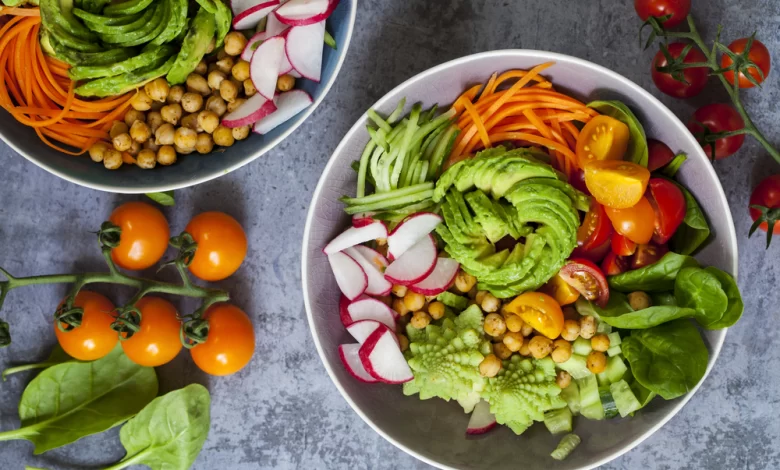Crudivore diet: the advantages and disadvantages of this diet

Raw food, crudivorism and “living food” are synonyms that all cover the same idea: raw food, that is to say, without cooking.
Very concretely, crudivore feeding forbids exposing food to a temperature above 42°C: indeed, it is from this temperature that (according to the lovers of raw food) most enzymes and phytonutrients are destroyed.
Crudivorism therefore presents itself as a “healthy diet”: the idea is to increase the nutritional intake of our daily foods to maximize their health and well-being potential.
Crudivore food: what are the benefits?
A diet rich in macro- and micronutrients
According to raw food enthusiasts, the cooking process (when you grill, roast, bake, fry, steam cook… a food, therefore) has 3 major effects: it partially destroys the micronutrients (vitamins, minerals…) that make up the food, it changes the molecular structure of its macronutrients (proteins, carbohydrates…), and it softens its fibers.
Focus on dietary fiber, in fact. According to the crudivores, when they are softened by cooking, they are more difficult to fulfill their role of “intestinal cleansing”: the diet then becomes low in fiber, and this is where many health problems – constipation, for example – appear.
A stronger immune system
Eating raw strengthens the immune system. For example, testimonials available on the website of the Hippocrates Health Institute (a medical center in the US that is regularly the subject of controversy and controversy) show that raw food may have had a positive effect on the evolution of certain autoimmune diseases – for example, multiple sclerosis or Lyme disease.
Weight loss
While crudivore diet was not designed with a slimming goal in mind, the fact is that eating raw helps to lose weight, as demonstrated by a study carried out in 1999 by the University of Giessen (Germany).
The study followed more than 500 adults who had been adept at crudivorism for an average of 3 and a half years. The German researchers found that, since they started eating raw, participants had lost an average of 9.9 kilograms (for men) and 12 kilograms (for women).
And also… Raw food enthusiasts claim that crudivorism (over time) improves the appearance of the skin, regulates blood pressure and cholesterol levels, facilitates sleep, better breathing, better digestion, relieves chronic pain…
Crudivore diet: What are the disadvantages?
An abnormal blood test
According to research carried out in October 2005 and published in the Journal of Nutrition, people who eat mainly raw food are more likely than others to have a disturbed blood test.
In particular, the researchers note a decrease in blood levels of HDL cholesterol (the ‘good’ cholesterol, which protects against cardiovascular disease) and an increase in blood levels of homocysteine (this phenomenon, called ‘hyperhomocysteinemia’, is associated with an increased risk of neurodegenerative diseases such as Alzheimer’s and Parkinson’s, depression and cardiovascular disorders).
More frequent deficiencies
Because it prohibits all forms of cooking, crudivore food is almost exclusively vegetable… which can lead to food deficiencies in the absence of medical supervision!
For example, raw food enthusiasts recommend that neophytes consume food supplements to avoid potentially serious health problems, especially vitamin B12 and vitamin D3.
Disrupted digestion
Bloating, flatulence, bowel movements too fast or too slow… When trying uncooked food, digestion may be disturbed for days or weeks. Caused by: More abundant and less digestible dietary fiber (because uncooked).
And also… Crudivorism can cause abnormal muscle fatigue (too little protein), cravings for sugar (with possibly food cravings), dental problems (which indicate a diet too rich in fruits and/or acidic vegetables), abnormally high weight loss (in case of insufficient calorie intake)…
Moreover, adopting an exclusively raw diet requires to be well equipped! In addition to good kitchen knives, it is best to invest quickly in a juice extractor, a powerful blender and/or a dehydrator.












